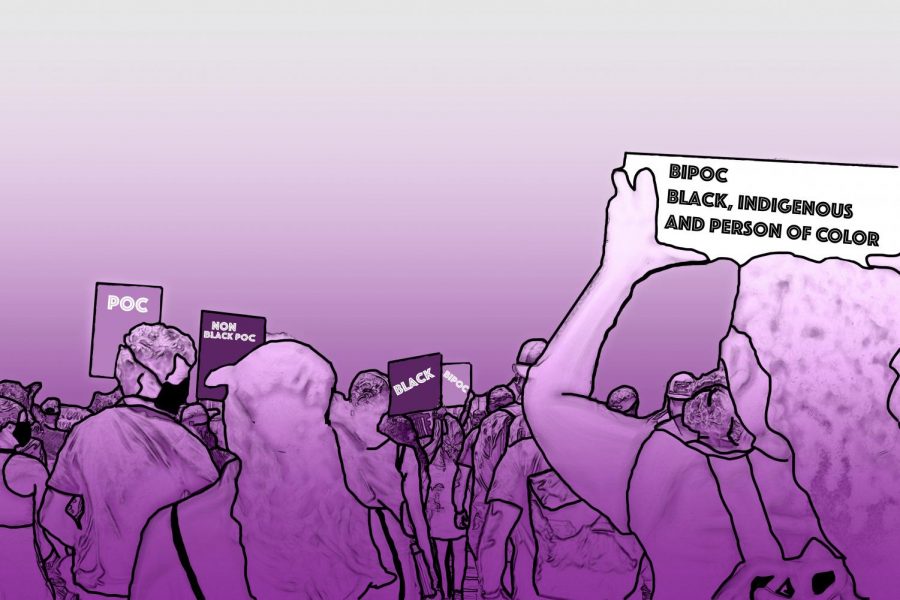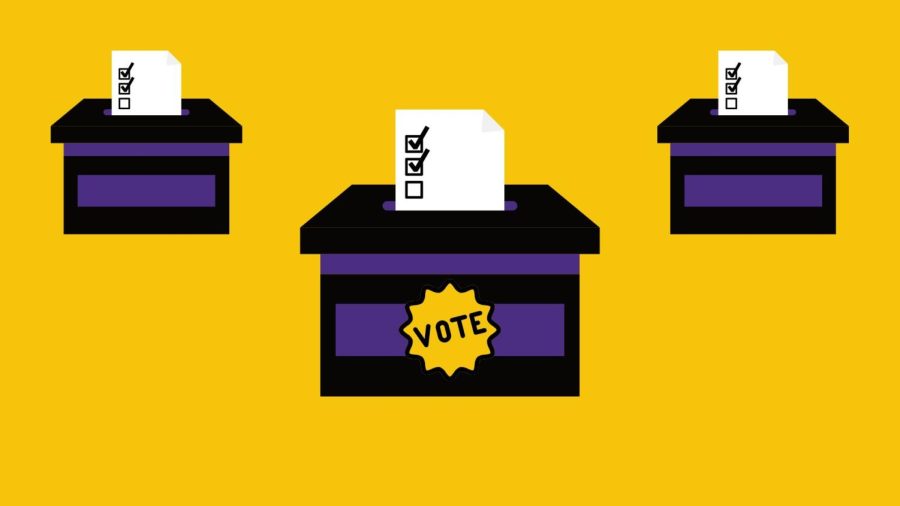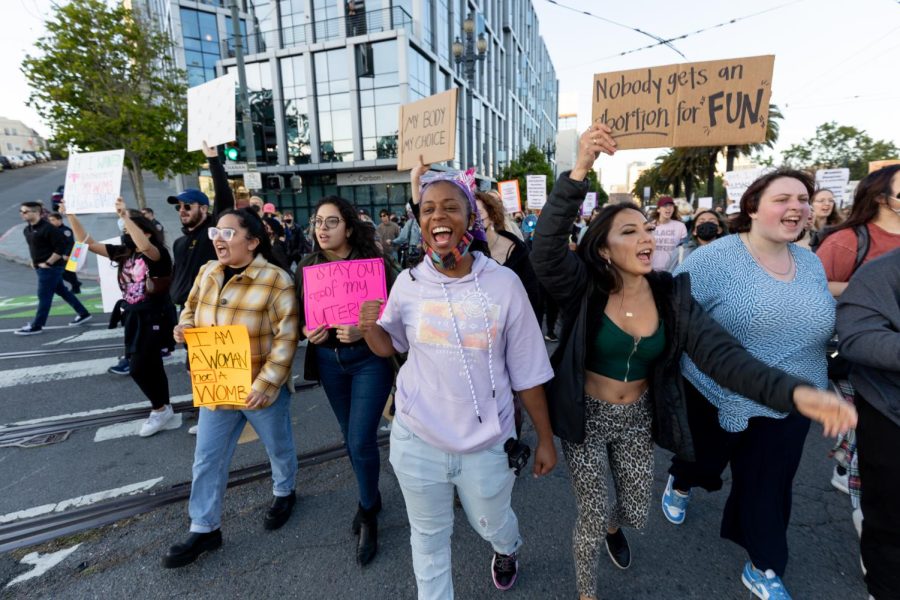Saying a Black person is Black, with a capital B, isn’t offensive – it’s a cultural identifier that should be acknowledged and respected as significant along with the people, history, community and other cultural aspects it encompasses.
It’s become a common occurrence to identify anyone who’s not white as “POC,” an acronym for person of color, or “BIPOC,” Black, Indigenous person of color. These acronyms are ingrained into current conversations. They are meant to distinguish the differences between white and non-white groups in regard to issues related to white privilege, racism, discrimination and wage disparity.
“POC was a great way to generalize all minorities, but in the last year or so, it’s solely been used as a safe word when addressing Black issues. Most of the frustration Black people have is, you’re discussing Black people and what’s happening within the community … you must specify it,” Brittny Pierre, Chicago-based music and pop-culture writer, said.
For white people, the use of these acronyms has served as a means for them to feel like they’re politically correct and not seem as racially insensitive. The use of POC by non-Black POC has evolved to become an umbrella term that assumes that all people of color are being oppressed and marginalized under a singular experience.
The phrase “I don’t see color” and colorblind perspectives dismiss race and ethnicity, exacerbating tensions by creating a false prosperous narrative that is complacent with racism.
POC was a great way to generalize all minorities, but in the last year or so, it’s solely been used as a safe word when addressing Black issues.
— Brittny Pierre
“When we’re discussing Black people being killed by police officers, we’re specifically addressing the systemic racism that is constantly reoccurring in this country, and when you relate it to POC or BIPOC, you’re disregarding my people’s struggles and lumping us with multiple cultures’ challenges,” Pierre said.
SF State Professor Danae Martinez of both Africana Studies and Race and Resistance Studies under the College of Ethnic Studies said that the narrative has now become POC against the injustice of police brutality, even though not everybody is targeted the same.
“Asians are not the target for the most part. Maybe darker skin Asians, their proximity to Blackness and whiteness is important,” Martinez said. “Also, a lot of times we think that we all have the same interests, and in many ways, sometimes we don’t. Because what ends up happening is there are non-Black POC who are taught their whole lives to hate Blackness. So we might be together and be against white supremacy, but we might not be together and be against anti-Blackness or anti-de-indigeneity.”
Black writers, journalists and online users have expressed irritation over this on social media, with the conversation around the use of these acronyms heightened as protests began across the country in this summer. Many plainly stated that they want to be labeled Black rather than POC.
The origin of POC isn’t as recent as a couple of years ago, but it has actually been used since the 1960s.
Deandre miles-Hercules, who has a doctorate in linguistics and focuses on sociocultural linguistic research on race, gender, and sexuality, said in an interview with Vox, “groups like the Black Panther Party for Self Defense and the Brown Berets came together in solidarity as people of color, which was a new instantiation of the idea of people having color.” The new solidarity term used person-first language, as opposed to “colored people.”
Martinez said that though race is commonly acknowledged to be a social construct, some people can’t even explain what that particularly means, even though they’ll continue to state it as such. She said that people have theorized or thought about race as this “set of classification systems, and almost as if they’re equal.”
“Race from its inception –– I’m not saying racism –– I’m saying race from its inception is a hierarchical system with specific groups that have specific relationships to those colonial figures or the colonizers, right? And so all people of color, for the most part, have that relationship that is not equal and is hierarchical between them and white colonizers. We all have that relationship. So sometimes POC can be helpful in grouping those groups together,” Martinez said.
The discourse on social media shows that POC is becoming antiquated in the public eye, as it reveals that the original intent in labeling non-white individuals as POC has lost its political power by failing to address the specific or more nuanced inequalities within communities of color.
“As much as Black people support non-Black communities, we often do not feel the same solidarity from many minority groups and are often subjected to racism. When we’re grouped with all people of color — when it’s specifically addressing police brutality that’s killing unarmed Black women, men, trans — it’s disheartening to consider this movement solely as a POC when oftentimes non-Blacks are not supporting us,” Pierre said.
In the midst of the ongoing movement and calls for justice responding to the murders of numerous Black people by police, conversations within the LGBTQ+, Latinx, Asian and Muslim communities have addressed anti-Blackness.
The emerging #LatinosforBlackLives movement does nothing but continue to display the disconnect non-Black Latinos perpetuate in both not acknowledging Afro-Latino and the erasure of Black identity throughout the community.
Professor Martinez unpacked this further, stating that Latino “is really more of an identity than an ethnicity, it’s too big to be an ethnicity.” She explained that an example of this is Haitians –– whose primary language is French –– and their identities are nonexistent when people identify the various groups that encompass the Latino community due to anti-Blackness and language differences. A similar argument has been made for Brazilians and Belizeans.
This goes further when discussing anti-Blackness rhetoric within the community between white and lighter-skinned Latino people who get into an uproar when Black Americans are spotlighted in mainstream media for accomplishments, accolades, even in stories of tragedy, and perpetuate this blame of “how come them and not us.”
The introduction of BIPOC brought about confusion as to what it initially stood for; some thought it meant a bisexual person of color, and others read it as “BIOPIC.”
I read BIPOC as bisexual POC everytime
— If Beale Street Could Twerk (@camerouninema) June 9, 2020
The BIPOC term was meant to help clarify the importance of the distinct histories that both the Black community and Indigenous communities are ingrained in the foundation of this country. The New York Times found the earliest use of this acronym was in 2013.
However, a mixed reception exists as to what exactly the term’s intent is and its purpose within conversations and movements for racial equality. The issues with the way POC and Black labeling are treated interchangeably extends in the attempts to use BIPOC. What it does in both separating yet still including these two groups in the POC umbrella can come off as lazy and create further erasure – especially when it comes to the issue of non-Black POC interjecting just how and what Black people should feel and grieve toward the injustice and inequality endured.
“The thing that putting the ‘BI’ in front of people of color does is at least in at least acknowledges the unique relationships that those two groups have to white supremacy and colonization, that what has happened to Black people and Indigenous people and what they suffer from is a bit different than what those other groups suffer from,” Martinez said. “We know this area of the Americas was colonized, taking of land and enslaving people. When you build an entire world around that, or an entire at least hemisphere around that, they’re gonna have a special relationship and their suffering… it can look very similar, but they’re going to have a special relationship to the colonizers.”
Language continues to develop and change constantly as conversations unpack the implications of it. The most recent example of this is the change in AP Style establishing that it will begin capitalizing the letter “B” in Black.
Our culture as America is growing out of the political situation of racial capitalism, an anti-Black system. You’re going to see all these little teeny itty bitty ways throughout, everything that you do is going to be anti-Black.
— SF State Professor Danae Martinez
“Our culture as America is growing out of the political situation of racial capitalism, an anti-Black system. You’re going to see all these little teeny itty bitty ways throughout, everything that you do is going to be anti-Black. And so when you have a movement of Black people moving against things, you’re gonna start to look at all those little things and bring them up, which can be as small as whether you capitalize B [in Black] or a W [in white],” Martinez said.
Before this decision was made, Black journalists and writers for years had been making the conscious choice to uppercase the B in Black, sometimes even lowercasing the w in white. Whether it was being dismissed by a college professor or a news editor the imbalance of power between the position of being a Black person working in a white-dominated field was exhibited.
“I grew up in a household where I was told the B was capitalized, but it wasn’t until I became a journalist that I was told by editors that wasn’t the case. Personally, it’s a big win that major news outlets have embraced the capitalization,” Pierre said.
When looking at what the debates over which groups are really included in the POC identity, what’s meant to be addressed through generalizing the racial disparities and systemic racism under white supremacy actually limits Black people and the longstanding issues endured in regards to cultural identity and history.










medisonclark • Feb 13, 2021 at 2:42 am
“I am sure this paragraph has touched all the internet
viewers, its really really pleasant post on building up new webpage”
medisonclark • Feb 11, 2021 at 11:24 pm
I am not sure where you are getting your info, but great topic. I needs to spend some time learning more or understanding more. Thanks for excellent information I was looking for this information for my mission
Alisha Ross • Feb 10, 2021 at 11:51 pm
Excellent blog here! Also your site loads up very fast! What web host are you using? Can I get your affiliate link to your host? I wish my site loaded up as fast as yours lo
Regards
Ross Alisha
medisonclark • Feb 9, 2021 at 11:16 pm
“Hey There. I discovered your weblog the use of msn. That is a
very neatly written article. I will be sure to bookmark it and
return to learn extra of your helpful information. Thank you
for the post. I will definitely comeback.”